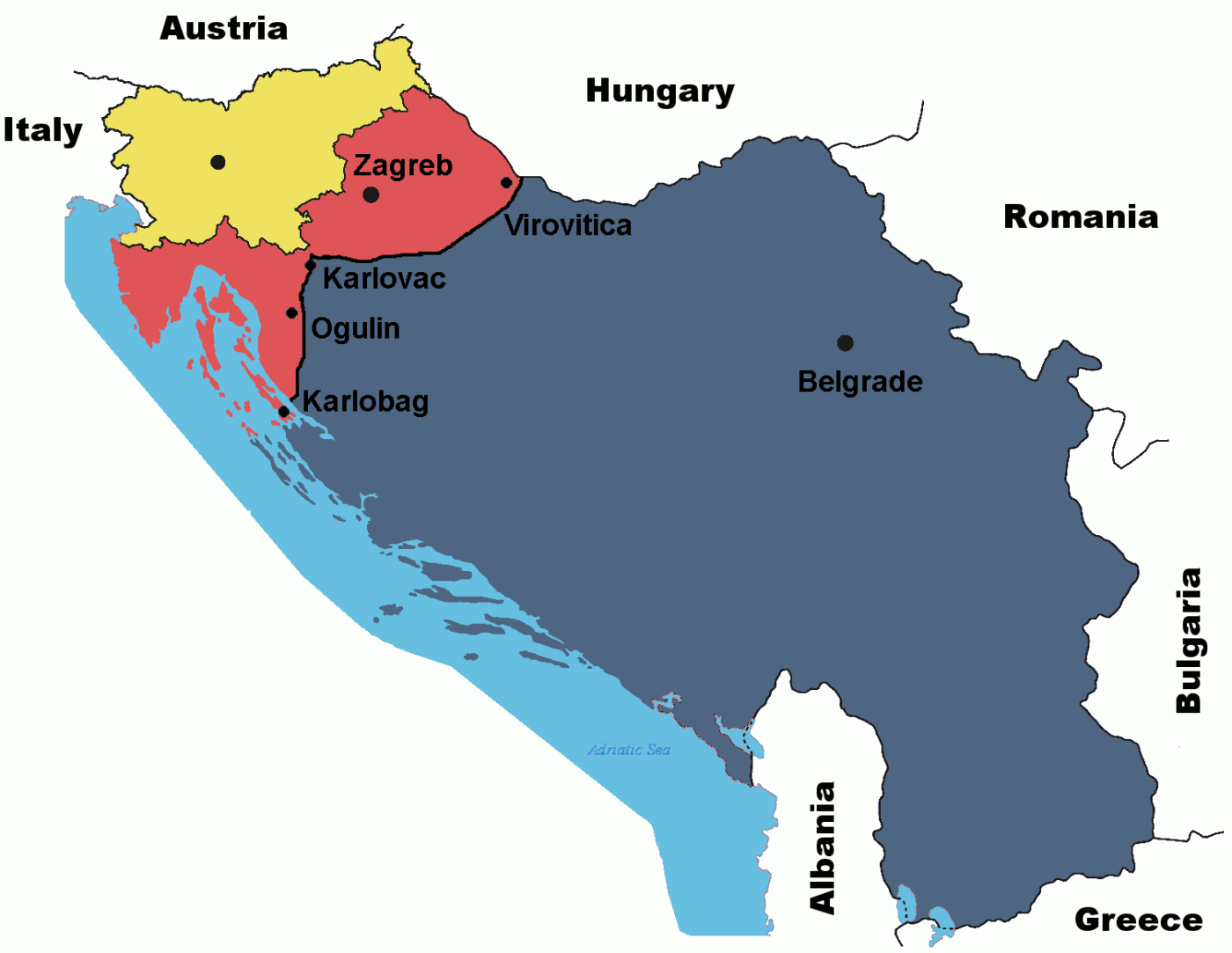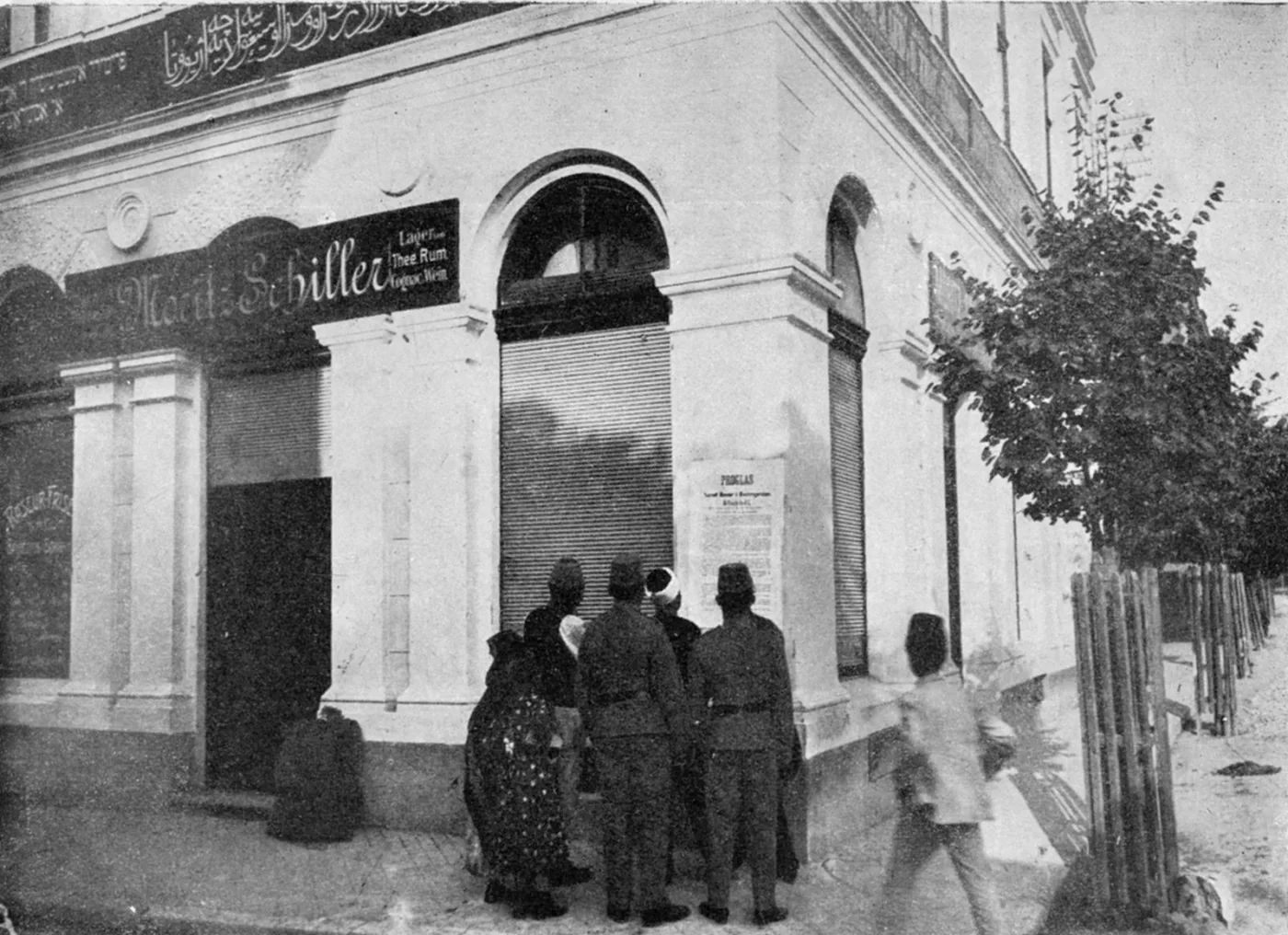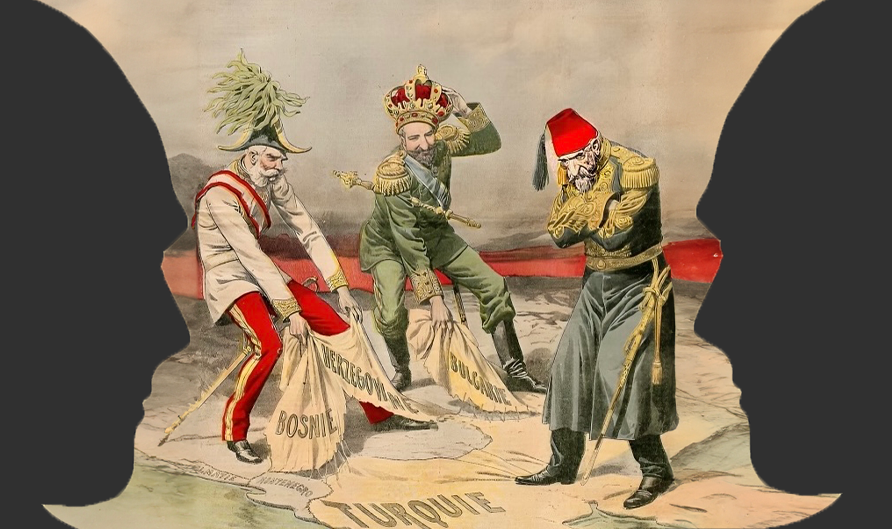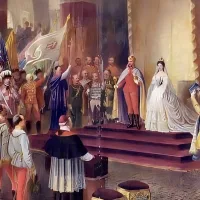What if there would not be a Bosnian Crisis in 1908? A Journey Through Alternate History
In the intricate tapestry of European history, few events have been as pivotal as the annexation of Bosnia and Herzegovina by Austria-Hungary in 1908. But what if Bosnia and Herzegovina would have never been annexed by the Austrian-Hungarian Empire? How would the trajectory of Europe, and indeed the world, have shifted? Let’s embark on a journey through this reimagined historical landscape, exploring the potential outcomes, both optimistic and critical.
The European Balance and the Balkan Cauldron
At the heart of Southeast Europe lies the Balkan Peninsula, a region historically known for its complex ethnic and religious tapestry. By the early 20th century, the Balkans were a hotspot of nationalist movements, with various groups vying for independence or greater autonomy. Bosnia and Herzegovina, with its mix of Orthodox Serbs, Catholic Croats, and Muslim Bosniaks, was no exception.
Had Austria-Hungary refrained from annexing these territories, the immediate consequence would likely have been a bolstered sense of nationalism among the Slavic populations. Serbia, in particular, had long harbored ambitions of creating a Greater Serbia, which would include Bosnia and Herzegovina. Without the heavy hand of Austria-Hungary, Serbia might have been emboldened to pursue these ambitions more aggressively.

The Domino Effect on European Alliances
The annexation of Bosnia and Herzegovina was not merely a regional affair. It had profound implications for the delicate balance of power in Europe. Russia, seeing itself as the protector of Slavic peoples, was vehemently opposed to Austria-Hungary’s move. The annexation strained the relationship between these two major powers and indirectly strengthened the ties between Russia and France, both wary of the Austro-Hungarian and German alliance.
Without the annexation, it’s conceivable that the tensions between Russia and Austria-Hungary might have been less pronounced. This could have led to a different alignment of European powers, potentially delaying or even preventing the outbreak of World War I.
Shadow of the Great War
The assassination of Archduke Franz Ferdinand in Sarajevo in 1914, an event directly linked to Bosnian discontent with Austro-Hungarian rule, was the spark that ignited World War I. Without the annexation, and with Bosnia potentially under Serbian influence or control, the Archduke’s visit might never have taken place, or at least not with the same tragic outcome.
However, it’s essential to remember that the roots of World War I were multifaceted. The annexation was just one among many factors. Even without it, the underlying tensions – militarism, alliances, imperialism, and nationalism – were all in place. The war might have been delayed, but it’s debatable whether it could have been avoided altogether.
Economic and Cultural Implications
On a more optimistic note, without the strain of managing a restive Bosnia and Herzegovina, Austria-Hungary might have been able to focus more on internal reforms and economic development. The Dual Monarchy had a rich cultural heritage, with cities like Vienna and Budapest being centers of art, music, and science. Freed from the challenges of Balkan politics, the empire might have experienced a more prolonged cultural and economic renaissance.

Conversely, Bosnia and Herzegovina, potentially under Serbian control or as an independent entity, might have developed a distinct national identity earlier. The region could have become a beacon of Slavic culture and unity, bridging the gap between East and West.
Not All Roses
While it’s tempting to envision a peaceful and prosperous Southeast Europe without the annexation, history has shown that the Balkans have been a cauldron of competing interests. Even without Austro-Hungarian intervention, other powers, like the Ottoman Empire or Italy, might have sought to fill the vacuum.
Furthermore, the rise of nationalism, while a source of pride and identity, can also be a double-edged sword. Ethnic tensions might have flared up in other ways, leading to conflicts and power struggles in the region.
Conclusion
The annexation of Bosnia and Herzegovina by Austria-Hungary in 1908 is a testament to how a single decision can ripple through history, shaping the destinies of nations and peoples. While it’s fascinating to imagine a world without this event, it’s crucial to approach such scenarios with a balanced perspective, recognizing the myriad factors at play.
Contrary reflections:
1. The Inevitability of Conflict in the Balkans
Some historians argue that even without the annexation, the Balkans were a powder keg waiting to explode. The region’s complex ethnic and religious makeup, combined with the decline of the Ottoman Empire, meant that some form of conflict was inevitable. The annexation might have accelerated tensions, but it didn’t create them.
2. The Role of Other European Powers
While the article touched upon the possibility of other powers filling the vacuum, some historians believe that without Austria-Hungary’s annexation, countries like Russia or even Britain might have played a more direct role in the Balkans. This could have led to an entirely different set of alliances and conflicts, potentially still culminating in a large-scale war.
3. The Unpredictability of Nationalism
The rise of nationalism is a double-edged sword. While the article posited a potentially stronger national identity for Bosnia and Herzegovina, some historians caution that this could have led to even more significant internal strife. The region’s diverse population might have found it challenging to coalesce around a single national identity, leading to internal conflicts.
4. The Complexity of World War I’s Origins
It’s a common misconception to oversimplify the causes of World War I. While the assassination of Archduke Franz Ferdinand was the immediate spark, the war’s roots were deep and multifaceted. Some historians believe that even without the annexation, the intricate web of alliances, militarism, and imperial ambitions would have led to a similar global conflict.
5. The Potential for Greater Ottoman Influence
The decline of the Ottoman Empire was a significant factor in the geopolitics of the early 20th century. Some historians speculate that without Austria-Hungary’s annexation, the Ottomans might have tried to reassert control over Bosnia and Herzegovina, leading to a different set of challenges and conflicts in the region.
How do you think today’s Europe would be different without the annexation of Bosnia and Herzegovina? 🧐 Leave your thoughts below!
More of → What If? ←
FAQ
1. How would Bosnia and Herzegovina’s culture and art have changed without Austria-Hungary’s influence?
Without the Austro-Hungarian influence, Bosnia and Herzegovina might have seen a stronger emphasis on its indigenous Slavic, Ottoman, and Balkan heritages. The region could have developed a unique blend of Eastern and Western artistic traditions, fostering a distinct cultural identity that celebrated its diverse roots.
2. Would not annexing Bosnia and Herzegovina have impacted the Austro-Hungarian Empire’s stability and longevity?
Not annexing Bosnia and Herzegovina might have reduced tensions and conflicts within the Austro-Hungarian Empire. This could have helped maintain stability and possibly prolonged the Empire’s existence. The annexation created internal and external pressures that contributed to its eventual downfall. But, without the annexation, the empire might have faced internal pressures to pursue other territorial gains or reforms. This could have either strengthened the empire by focusing on internal cohesion or weakened it by exposing its vulnerabilities to external powers.
3. How would the religious dynamics in Bosnia and Herzegovina have changed without annexation?
The annexation brought with it a degree of religious pluralism under the Austro-Hungarian administration. Without it, Bosnia and Herzegovina might have seen heightened religious tensions, especially if it fell under the influence of a predominantly Orthodox Serbia or remained with the Muslim-majority Ottoman Empire. Alternatively, the region could have charted its path of religious coexistence, becoming a beacon of interfaith harmony in the Balkans.
4. Would non-annexation have strengthened the Pan-Slavic movement in the early 20th century?
The Pan-Slavic movement, which aimed to unite all Slavic peoples, was gaining momentum in the early 20th century. Without the annexation, the Pan-Slavic movement might have gained even more momentum. Slavic unity and resistance against Austro-Hungarian influence could have been stronger. This could have led to greater collaboration among Slavic nations in the region.
5. How would the economies of Austria-Hungary and Bosnia and Herzegovina have changed without the 1908 annexation?
Without the 1908 annexation, Austria-Hungary might have had slower economic integration in the Balkans. Bosnia and Herzegovina could have developed a more independent economy, possibly focusing more on local resources and trade. Both regions might have followed different growth paths and economic policies.
This was a delight to read. You show an impressive grasp on this subject! I specialize about Appliances and you…
i think he was just a crazy guy, a victim of his childhood and enviroment
super interesting 🤔
Loved this article, learned a lot!




Leave a Reply